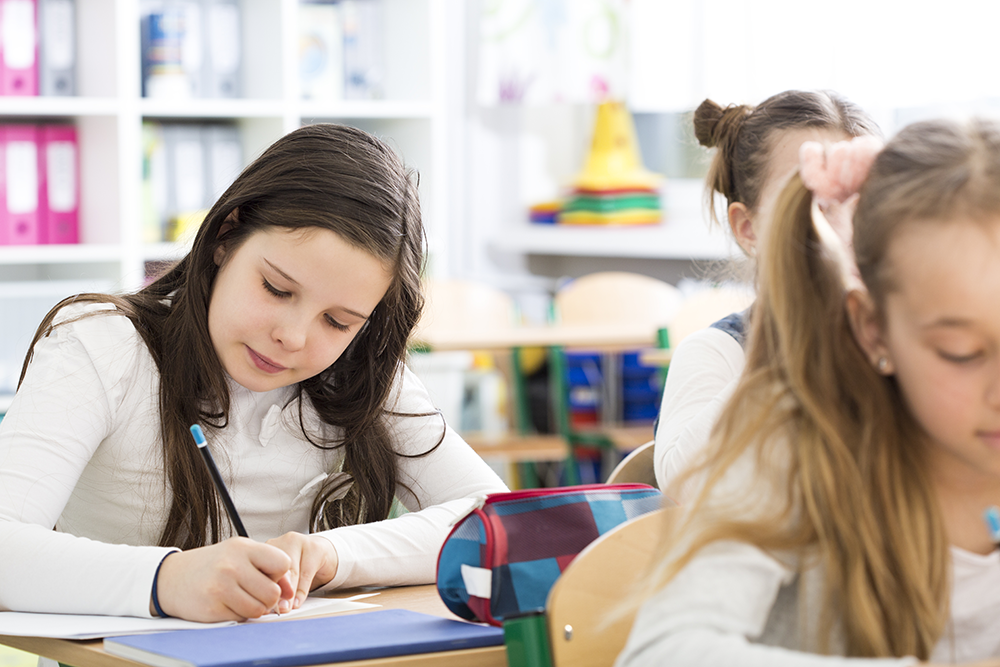Some children will be incredibly excited at the prospect of starting ‘big school’, while others may be holding back and clinging to their parents on the first day. Every child is different and you probably have an idea of how your own child will cope with school. Although they may surprise you!
Here are a few tips to help you through those first few weeks.
Easing your child into school and building their confidence.
Most schools have a settling in period to make these first days seem less daunting. The children may be doing half days or be split into groups rather than the whole class starting at the same time. You will most likely be able to take your child into their classroom in these first few weeks and you can help by encouraging them to look for their own name in the cloakroom rather than hanging their coat up for them. When they’re happy, say goodbye and let them know you’ll be back later. Never try to sneak out without your child noticing, as this could upset them. Also try and be a few minutes early at pick up time so they don’t worry you’ve forgotten them!
Some children will be more ready for school than others. If they have been attending a full time nursery they will already be used to full days. However, the thought of a new ‘big school’ with unfamiliar children and teachers can still be worrying. You could arrange playdates with old and new friends so it doesn’t feel like everything has changed.
Make things as simple as possible for the first year or so, to help ease your child into school. For instance, Velcro fastenings on shoes will be much easier for your child to manage than lace ups. If they take a packed lunch, make sure they can easily open any packaging by themselves.
Show interest in what they’ve been learning, but don’t worry too much if they can’t remember. It might help to ask specific questions such as “Who did you sit next to?” or “Did you sing any songs today?”, rather than “What did you do today?”
Supporting your child at home.
Learning phonics is one of the most important elements of a child’s first year at school and their homework may be to practise a different letter sound each week. School gives children the foundations for reading but much help is required at home. You could help them by reading labels in the supermarket or road signs while out and about. Read together every evening if you can and try and find books on topics your child is interested in. Look at the pictures together and see if they can guess what is happening in the story or what might happen next.
Look for fun learning opportunities at home. Make a cake and ask your child to help measure out the ingredients and read the recipe together. Or play ‘shops’, adding up how much things cost and counting money. Praise them if they get an answer correct but let them know effort is important too. Try not to use the words “You got it wrong”, instead try something like “Well done, you tried really hard but it’s not quite right, shall we try again?”
Managing a new routine.
Early nights and stress-free mornings are important, so lay clothes out in the evening and make time for a healthy breakfast. A reward chart can help children to get ready in the mornings, with all the tasks they need to do before school – eating breakfast, cleaning teeth, getting dressed, etc.
Time outdoors can help them unwind and let off steam after being in the classroom all day. Fresh air will also help to promote a good night’s sleep.
Most importantly, the calmer you seem about your child’s first days at school, the less worried they are likely to be. Usually the children are fine anyway, it’s the parents who go home and cry at the thought of leaving them!
Written by Helen C, blogger and Mummy to ‘The Princess and the Pickle’ theprincessandthepickle.blogspot.co.uk @leila_jo-mummy



